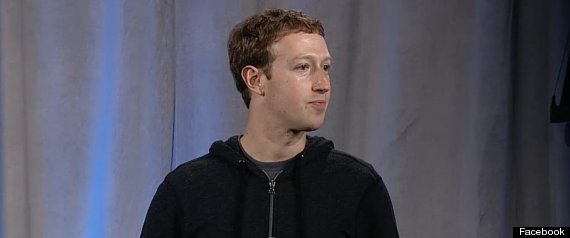
Mark Zuckerberg wasn’t lying: Facebook isn’t building a phone. Instead, it’s building Facebook into your Android phone.
Facebook on Thursday unveiled Facebook Home, “a family of apps” designed to integrate Facebook more closely with Android’s operating system.
“Today, our phones are designed around apps, not people,” Zuckerberg, Facebook’s founder and CEO, said during the event. “We want to flip that around.”
As Zuckerberg demonstrated, Facebook Home will transform an Android’s homescreen and lock screen, allowing users to “like,” comment and message right as they turn on their phones. To access other apps, which usually dominate a smartphone’s homescreen, all you’ll need to do is swipe your finger.
“All of the interactions are really smooth and natural,” Zuckerberg said, adding that Facebook “wanted it to feel like system software rather than an app.”
“With Home,” Zuckerberg said, “You see your world through people, not apps.”
Zuckerberg also unveiled “chat heads,” which will allow you to Facebook Chat and SMS with people without switching to another app.
With chat heads, if a friend messages you, a small photo of the person’s head will pop up on the screen, regardless of whatever else you’re doing on the phone at that time. You can start a chat without quitting the app by tapping the face of the person when he appears.
“Chat heads gives you this immediate personal connection to the people you care about,” Zuckerberg said.
Adam Mosseri, the director of product at Facebook, took to the stage after Zuckerberg to demonstrate cover feed, which is Facebook Home’s interactive lock and home screen. Instead of a clock or notifications that occupy the home screen now, Facebook Home will shuffle through what Mosseri called a “visually rich news feed” that includes photos, shared links and status updates.
Users can “like” and comment on content with simple gestures. Mosseri said that Facebook is trying “to make it so there’s nothing between you and your content. You can directly just reach out and touch it.”
Facebook Home for Android smartphones will be available in Google Play on April 12, with a version for tablets ready in “several months.”
Source: Huffington Post